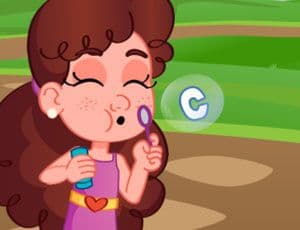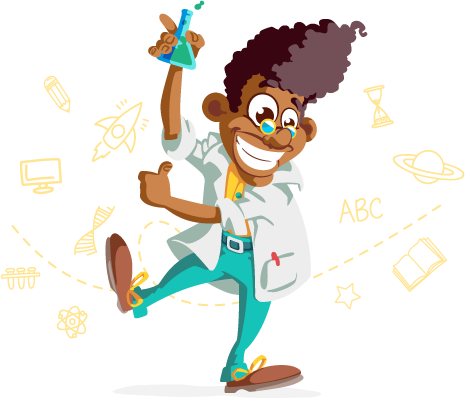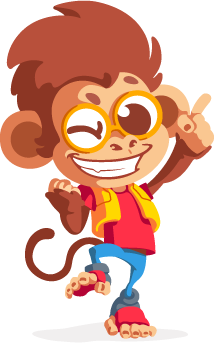Escola Games | Jogos Educativos
https://www.escolagames.com.br
Teacher's support sheet

Soap Letters
Come play with soap bubbles at the park with Lucy. Every time a bubble bursts, you learn a new letter!

Teacher's tips
Level of Education: Preschool - Elementary School
Subject: English
Theme: Literacy - Reading process
Age: 4 to 6 years old
Games are a helpful resource in the literacy phase because they help in different knowledge areas, motivate students, and awaken their expressiveness, imagination, communicative language, concentration, and logical thinking. Use this game to illustrate your work with the alphabet. All the letters are capitalized, the ideal format for this process. When the bubbles burst, students can listen to the sound of the letter and a word starting with it. [FIM-DICA]
Learner outcomes
To learn the alphabet and its sequence;
To acknowledge the use of the alphabet on the words;
To associate letters with their sounds;
To know the alphabet's sequence;
To differentiate letters from numbers;
To see the difference between vowels and consonants;
To reinforce content discussed during the classes;
To develop attention and focus;
To improve motor coordination.
Teachers' goals
To enable students to identify the alphabet as a limited group of symbols that represent the spoken language;
To provide students the improvement of their reading and writing skills of students;
To widen the vocabulary of the group;
To offer a playful situation so that students can associate the letters with their sounds and written symbols;
To offer the game as a didactic resource to explore the content discussed in the classroom;
To favor the comprehension of the word formation process.
Suggestions of approaches for the teacher
(Approach 1) Print the vowels and ask students to paint or color them. They can use crayons, paint, coloring pencils, or pens.
(Approach 2) Play a vowel hopscotch. Draw it on the ground. While jumping the hopscotch, ask students to say the names of the vowels.
(Approach 3) Ask students to write words starting with the same letter.
(Approach 4) Hand students a dictionary and ask them to look for specific words. You can develop this activity in the library.
(Approach 6) Word dictation.
(Approach 7) Word cloud: Draw a big cloud on the board with all the alphabet letters. Then, ask students to think of a word starting with each letter. You can also ask students to form groups and do a word cloud on cardboard.
(Approach 8) Use coloring pens to write the alphabet in cursive and print letters. For each letter, ask students to draw something that starts with them.
(Approach 9) Build a memory game.
(Approach 10) Make a letter domino. You can use cardboard or wood. Divide it into two parts. In each portion, glue an alphabet letter and hand them to students. In groups, students should form words using the domino. They can borrow letters from the container but never from their classmates. Wins the students that use all their domino pieces.
(Approach 11) Ask students to get bottle lids and take them to class. Then, insert a letter on each top. Give them to students and ask them to form words and then sentences.
(Approach 12) Cut letters from magazines to write words and then sentences.
(Approach 13) Ply hangman or snowman.
(Approach 14) Work with songs during classes. They can be about the alphabet or use them to talk to students about other words.
More about the content
"Literacy is the ability to read, write, speak and listen in a way that lets us communicate effectively and make sense of the world." However, learning the letters is not enough to interpret the world. Each student has a way of understanding the topics. This process starts in the first child's year, with the acquisition of the language and the phonemes. That is why it is important to present kids with reading in their first years of life.
Here are some activities to help with the literacy process:
● Storytelling for kids
● Read books and encourage students to interact with books
● Use illustrated activities
● Ask students to storytelling
● Playing with the movable alphabet
● Encourage students to write stories
● Promote tactile experiences
Source:
https://literacytrust.org.uk/information/what-is-literacy/
https://online.maryville.edu/blog/literacy-development-in-children
